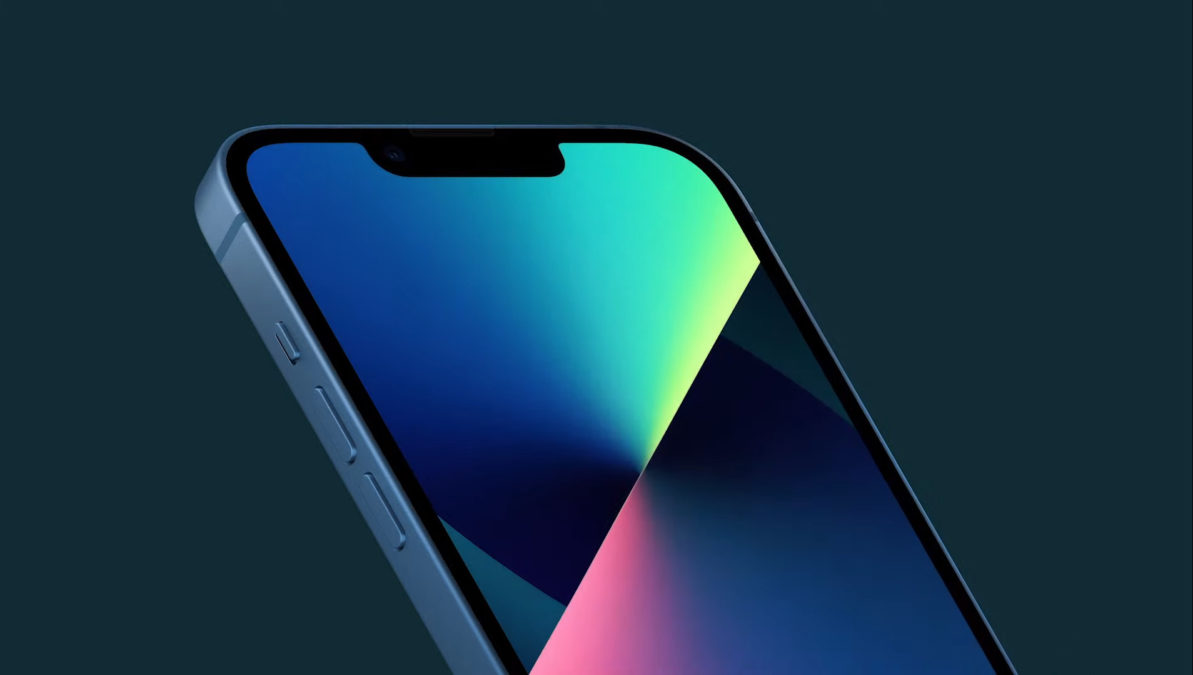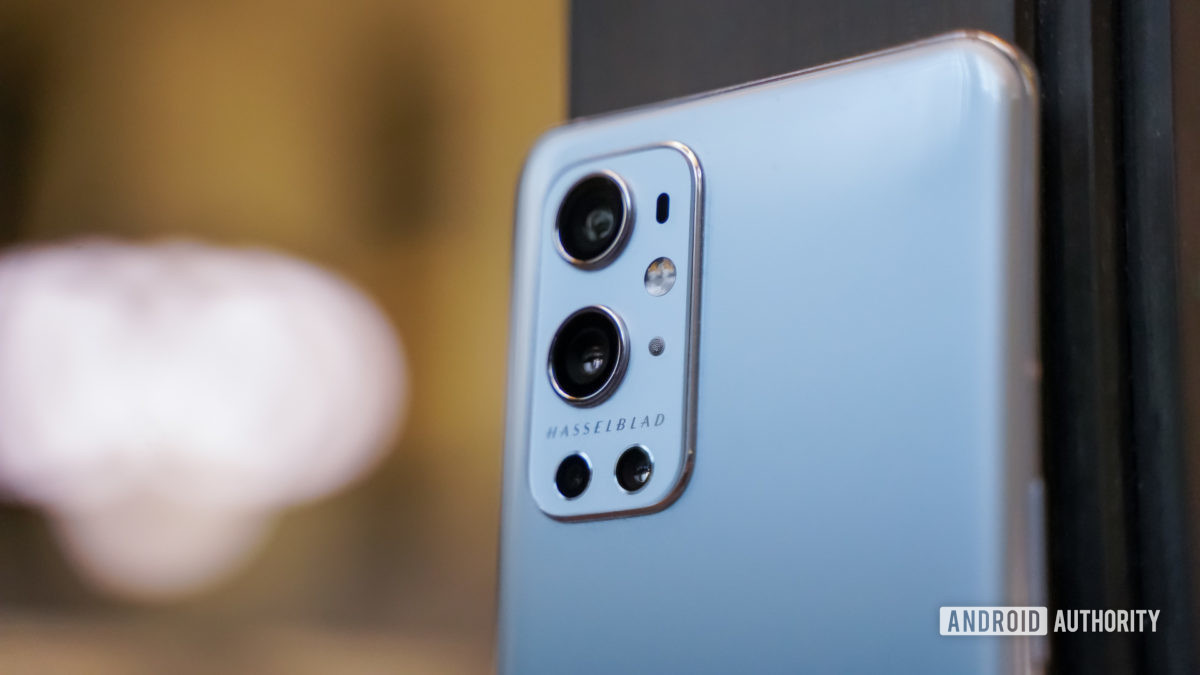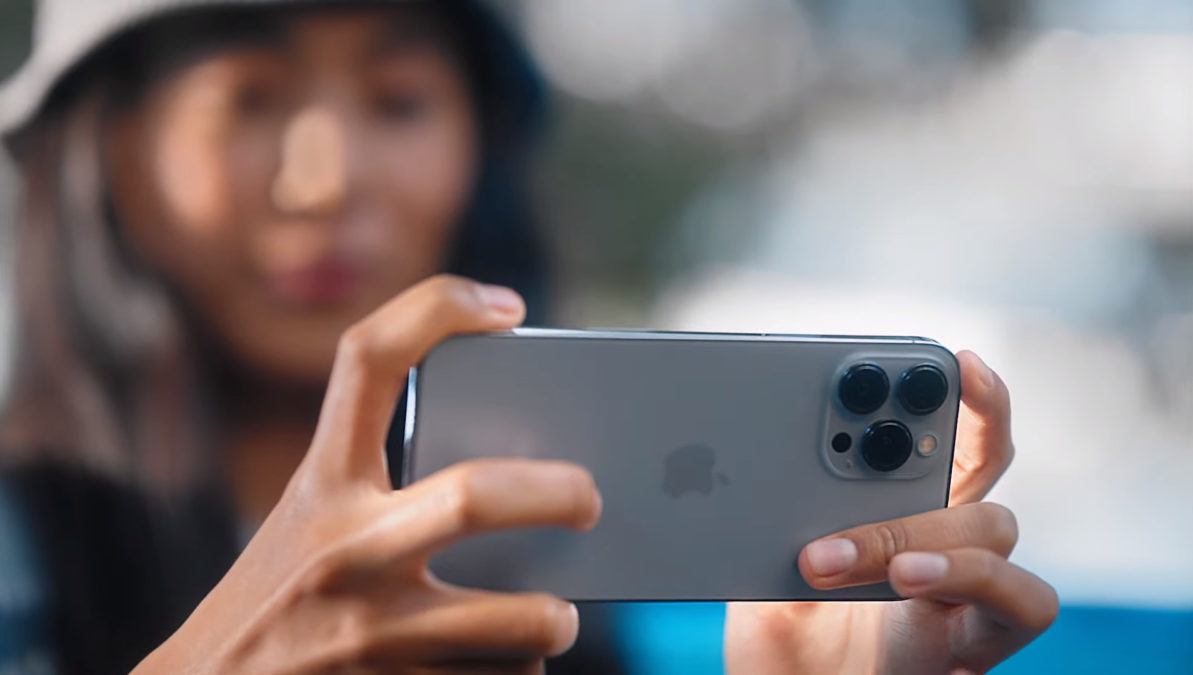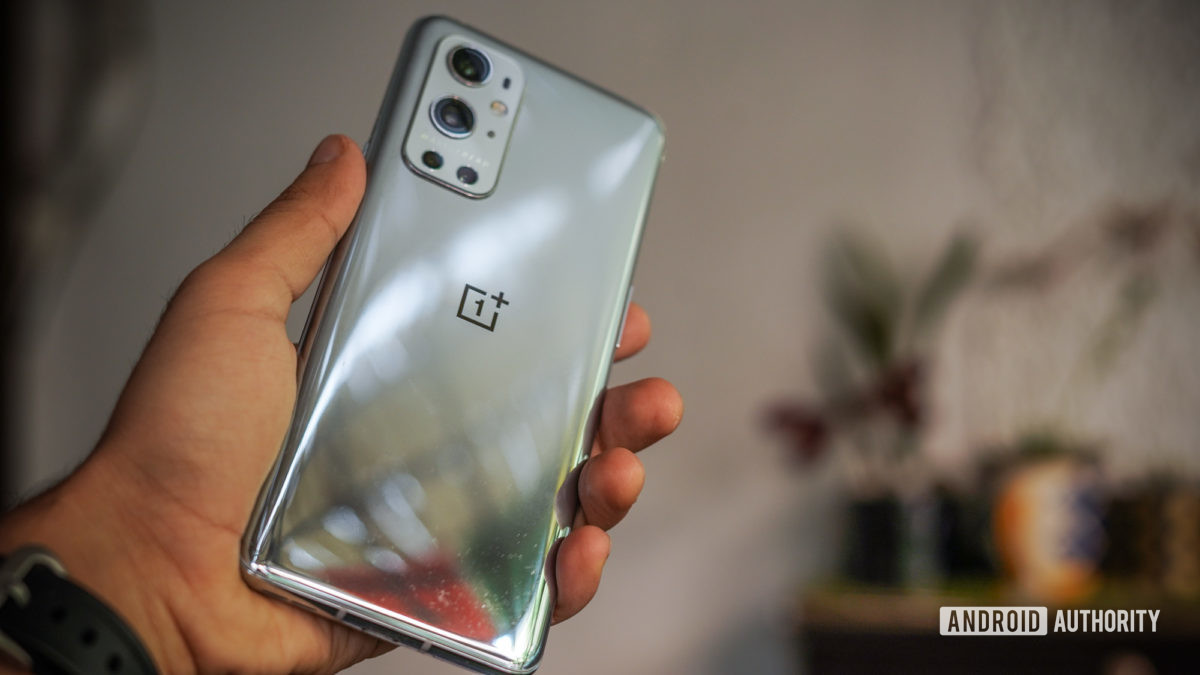The iPhone 13 series is here, and now it’s time to see how it stacks up against OnePlus’ flagship phones. Both OEMs have pushed their latest lines further than ever, but you can only add one to your pocket. Let’s compare the two series to see which one comes out on top in the OnePlus 9 vs iPhone 13 battle.
The difference in operating systems might be obvious, but that’s only the tip of the iceberg. We’ll dig through the displays, cameras, and more to give you a better idea of which phone is best for you.
OnePlus 9 vs iPhone 13
Design and display

Apple’s latest iPhone 13 and the OnePlus 9 series have precious little in common. For starters, Apple is sticking with its flat displays and notched design for another year — though it did finally give its notch a trim. You’ll also see that Apple kept the flat-sided design that many people loved from the iPhone 12 series. In fact, it’s a challenge to find too many things that Apple changed this year.
The iPhone 13 family still numbers four devices, starting with the iPhone 13 Mini. Its display measures a pocket-friendly 5.4-inches and carries nearly the same specs as you’d find on the 6.1-inch iPhone 13. Both devices offer Super Retina XDR OLED panels, complete with HDR and True Tone technologies.
The iPhone 13 Mini is the baby of the bunch, while the OnePlus 9 Pro and iPhone 13 Pro Max tie with 6.7-inch displays.
Apple’s high-end iPhone 13 Pro and Pro Max offer the same displays as last year, coming in at 6.1-inches and 6.7-inches, respectively. The two don’t add a ton to the overall mix, though they’re the first iPhones to offer a 120Hz refresh rate. You’ll also find an IP68 rating standard across the full range, as well as Apple’s famed Face ID security.
Over on the OnePlus 9 series, the design choices are unmistakably Android. The OnePlus 9 and OnePlus 9 Pro pack corner-mounted punch-hole cameras, which serve as the only interruptions to the crips AMOLED panels. The standard OnePlus 9 is the smaller of the pair at 6.55-inches and it carries a Full HD+ resolution. You get a larger 6.7-inch curved AMOLED on the OnePlus 9 Pro, which comes with a jump to QHD+.
Read our reviews: OnePlus 9 | OnePlus 9 Pro
As for IP ratings, the OnePlus 9 Pro is IP68 waterproof across the board. The OnePlus 9 also comes with an IP68 rating, though only on the T-Mobile version. This most likely means that all versions are waterproof, T-Mobile just splashed the cash for the certification. OnePlus offers its own take on face unlock for its latest flagships, but it’s best to stick with the in-display fingerprint scanner since the tech is not as secure as Apple’s Face ID.
Hardware and cameras

It’s not just the outsides of the OnePlus 9 and iPhone 13 series that differ, the insides are different as can be as well. One of the more obvious points is that Apple uses its own A15 Bionic chip across the entire range. Then there’s the operating system, with the new iPhone series running Apple’s latest iOS 15.
OnePlus, on the other hand, tapped the powerful Qualcomm Snapdragon 888 to keep the lights on in its latest flagships. Both the OnePlus 9 and OnePlus 9 Pro are currently running on Android 11 with Oxygen OS 11 on top, but it’s safe to expect a prompt update to Android 12 in the coming months. The maker of Android’s so-called flagship killer is also happy to boast about its onboard RAM — you can take your pick between 8GB and 12GB. You can get either phone with up to 256GB of storage.
OnePlus is more forthcoming about its battery sizes as well and holds a huge edge on charging speeds. Its 2021 duo offers a 4,500mAh battery on both models with 65W Warp Charge right out of the box. You can also try 50W wireless charging on the OnePlus 9 Pro or 15W speeds on the standard OnePlus 9.
Read next: OnePlus Warp Charge 65 review
Apple is just as happy not to tell you how much RAM the iPhone 13 family carries, and you won’t find a clear battery capacity, either. However, iOS is perfectly optimized to squeeze every last minute of juice from its smaller cells. You can give 15W MagSafe wireless charging a try or stick with standard Qi wireless charging at 7.5W speeds. The Pro models come with as much a 1TB of storage, while the iPhone 13 and 13 Mini can be had with up to 512GB of space.
Both families offer 5G support as well as Wi-Fi 6 when you’re connected to a home network. OnePlus went for the newer Bluetooth 5.2, while the iPhone series is rolling with Bluetooth 5.0.
As if the OnePlus 9 and iPhone 13 needed more ways to differ, it’s time to take a look at the cameras. Apple is doubling and tripling down on its 12MP lenses with great results. The iPhone 13 and 13 Mini pack a pair of lenses on the back, though they’ve moved to a diagonal configuration for the first time. You can push them to 2x optical zoom or 5x digital zoom, and both phones offer Deep Fusion and Night Mode.
Apple has perfected its 12MP shooters over the years, while OnePlus is hoping to maximize its megapixels.
The iPhone 13 Pro and Pro Max bring a 12MP telephoto sensor into the mix, and they’ve always been the way to go for photography enthusiasts. You can achieve slightly better optical and digital zooms, and you’ll have to go for the Pro models if you want Apple ProRAW. Apple is also making a big deal about its latest video capacity, with HDR video powered by Dolby Vision at up to 60fps.
OnePlus wants nothing to do with 12MP lenses, instead partnering with Hasselblad to push the megapixels to their limits. The OnePlus 9 and 9 Pro feature a 48MP Sony sensor as their main lens with a 50MP ultra-wide option for backup. The OnePlus 9 rounds out with a 2MP monochrome option, while the OnePlus 9 Pro puts an 8MP telephoto lens on top of it all. You can shoot up to 8K video at 30fps on both phones or try 4K at up to 60fps.
Price and colors

- OnePlus 9: $729 / €719 / £629
- OnePlus 9 Pro: $969 / €919 / £829
- iPhone 13 Mini: $699 / €829 / £679
- iPhone 13: $799 / €929 / £779
- iPhone 13 Pro: $999 / €1,179 / £949
- iPhone 13 Pro Max: $1,099 / €1,279 / £1,049
If you’re hoping to save yourself a little bit of money, it’s tough to top the iPhone 13 Mini. It starts at just $699, though you’ll get the smallest display and the smallest battery to match.
Apple’s other models keep the same pricing structure as last year, but there are a few new colors to choose from. If you want either of the smaller, more affordable devices, your options include pink, blue, Midnight, Starlight, and Product Red. The iPhone 13 Pro siblings come in gold, silver, Graphite, and Sierra Blue.
Save some money: The best iPhone deals
Either one of Apple’s premium devices is a sure-fire way to spend over $1,000 when all is said and done. The iPhone 13 Pro kicks off at $999, while the Pro Max adds another $100 to that price for the base model. If you need extra storage, you can bet that the price will skyrocket.
OnePlus also abandoned its flagship killer prices for the OnePlus 9 series. While the OnePlus 9 starts at $70 less than its iPhone rival, the OnePlus 9 Pro shatters the $1,000 barrier for the 256GB version. On the bright side, it’s still $30 more affordable than the 128GB iPhone 13 Pro Max.
As for color options, the OnePlus 9 comes in Morning Mist, Pine Green, and Stellar Black. The OnePlus 9 Pro switches things up with Winter Mist, Arctic Sky, and Astral Black options instead.
The vanilla model with all the basics.
Specs
| OnePlus 9 | OnePlus 9 Pro | |
|---|---|---|
| Display | 6.55-inch flat AMOLED 20:9 aspect ratio 2,400 x 1,080 at 402ppi 120Hz refresh rate (static) |
6.7-inch curved LTPO AMOLED 20.1:9 aspect ratio 3,216 x 1,440 at 525ppi 120Hz refresh rate (adaptive) |
| Processor | Qualcomm Snapdragon 888 | Qualcomm Snapdragon 888 |
| RAM | Min: 8GB LPDDR5 Max: 12GB LPDDR5 |
Min: 8GB LPDDR5 Max: 12GB LPDDR5 |
| Storage | Min: 128GB UFS 3.1 Max: 256GB UFS 3.1 No external storage support |
Min: 128GB UFS 3.1 Max: 256GB UFS 3.1 No external storage support |
| Power | 4,500mAh battery
Warp Charge 65T 15W Qi-compatible wireless charging |
4,500mAh battery
Warp Charge 65T Warp Charge 50 Wireless |
| Ports | USB-C 3.1 Gen 1 No 3.5mm headphone jack No microSD card slot |
USB-C 3.1 Gen 1 No 3.5mm headphone jack No microSD card slot |
| Connectivity | 5G support Wi-Fi 6 support 2×2 MIMO Wi-Fi 802.11 a/b/g/n/ac/ax NFC support Bluetooth 5.2 |
5G support Wi-Fi 6 support 2×2 MIMO Wi-Fi 802.11 a/b/g/n/ac/ax NFC support Bluetooth 5.2 |
| Cameras | Rear: 1) 48MP main (Sony IMX689) 1/1.43-inch sensor 1.12μm/46MP or 2.24μm/12MP ƒ/1.8, EIS 2) 50MP ultra-wide (Sony IMX766) 3) 2MP monochrome Front: |
Rear: 1) 48MP main (Sony IMX789) 1/1.43-inch sensor 1.12μm/46MP or 2.24μm/12MP ƒ/1.8, EIS, OIS 2) 50MP ultra-wide (Sony IMX766) 3) 8MP telephoto 4) 2MP monochrome Front: |
| Video | 8K at 30fps 4K at 30 or 60fps Super slo-mo at 720p/480fps or 1080p/240fps Time lapse at 1080p/30fps or 4k/30fps |
8K at 30fps 4K at 30, 60, or 120fps Super slo-mo at 720p/480fps or 1080p/240fps Time lapse at 1080p/30fps or 4k/30fps |
| Audio | Bluetooth 5.2 aptX, aptX HD, LDAC, AAC Dual stereo speakers Dolby Atmos |
Bluetooth 5.2 aptX, aptX HD, LDAC, AAC Dual stereo speakers Dolby Atmos |
| Security | No IP rating against water/dust In-display fingerprint sensor Face unlock (insecure) |
IP68-rated In-display fingerprint sensor Face unlock (insecure) |
| Software | Android 11 Oxygen OS 11 |
Android 11 Oxygen OS 11 |
| Dimensions and weight | NA/Europe: 160 x 74.2 x 8.7mm 192g India/China: |
Global: 163.2 x 73.6 x 8.7mm 197g |
| Colors | Winter Mist, Arctic Sky, Astral Black |
Morning Mist, Pine Green, Stellar Black |
| iPhone 13 Mini | iPhone 13 | |
|---|---|---|
| Display | 5.4-inch Super Retina XDR OLED 2,340 x 1,080 resolution HDR, True Tone Wide color (P3) 2,000,000:1 contrast ratio 800 nits max brightness (typical); 1200 nits max brightness (HDR) Ceramic Shield front |
6.1-inch Super Retina XDR OLED 2,532 x 1,170 resolution HDR, True Tone Wide color (P3) 2,000,000:1 contrast ratio 800 nits max brightness (typical); 1200 nits max brightness (HDR) Ceramic Shield front |
| Processor | Apple A15 Bionic | Apple A15 Bionic |
| Storage | 128 / 256 / 512GB | 128 / 256 / 512GB |
| Battery | Qi wireless charging up to 7.5W Up to 50% charge in around 30 minutes with 20W adapter or higher (sold separately) MagSafe: |
Qi wireless charging up to 7.5W Up to 50% charge in around 30 minutes with 20W adapter or higher (sold separately) MagSafe: |
| Cameras | Rear: -Wide-angle 12MP, ƒ/1.6, OIS, 7-element lens -Ultra-wide 12MP, ƒ/2.4, 120° field of view, 5-element lens, lens correction 2x optical zoom out, digital zoom up to 5x, Night Mode, Deep Fusion, Smart HDR 3 Video: Front: Night Mode, Deep Fusion, Smart HDR 3 |
Rear: -Wide-angle 12MP, ƒ/1.6, OIS, 7-element lens -Ultra-wide 12MP, ƒ/2.4, 120° field of view, 5-element lens, lens correction 2x optical zoom out, digital zoom up to 5x, Night Mode, Deep Fusion, Smart HDR 3 Video: Front: Night Mode, Deep Fusion, Smart HDR 3 |
| Connectivity | 5G (sub‑6GHz and mmWave) Gigabit LTE with 4×4 MIMO and LAA Wi‑Fi 6 (802.11ax) with 2×2 MIMO Bluetooth 5 Ultra Wideband chip for spatial awareness NFC Express Cards with power reserve GPS, GLONASS, Galileo, QZSS, and BeiDou Digital compass Wi‑Fi Cellular iBeacon microlocation |
5G (sub‑6GHz and mmWave) Gigabit LTE with 4×4 MIMO and LAA Wi‑Fi 6 (802.11ax) with 2×2 MIMO Bluetooth 5 Ultra Wideband chip for spatial awareness NFC Express Cards with power reserve GPS, GLONASS, Galileo, QZSS, and BeiDou Digital compass Wi‑Fi Cellular iBeacon microlocation |
| Sensors | Face ID Barometer Three‑axis gyro Accelerometer Proximity sensor Ambient light sensor |
Face ID Barometer Three‑axis gyro Accelerometer Proximity sensor Ambient light sensor |
| Software | iOS 15 | iOS 15 |
| Durability | IP68 | IP68 |
| Dimensions and weight | 131.5 x 64.2 x 7.65mm 141g |
146.7 x 71.5 x 7.65mm 174g |
| Colors | Pink, Blue, Midnight, Starlight, and Product Red | Pink, Blue, Midnight, Starlight, and Product Red |
| In the box | iPhone USB‑C to Lightning cable Documentation |
iPhone USB‑C to Lightning cable Documentation |
| iPhone 13 Pro | iPhone 13 Pro Max | |
|---|---|---|
| Display | 6.1-inch Super Retina XDR OLED 2,532 x 1,170 resolution ProMotion 120Hz HDR, True Tone Wide color (P3) 2,000,000:1 contrast ratio 1,000 nits max brightness (typical); 1200 nits max brightness (HDR) Ceramic Shield front |
6.7-inch Super Retina XDR OLED 2,778 x 1,284 resolution ProMotion 120Hz HDR, True Tone Wide color (P3) 2,000,000:1 contrast ratio 1,000 nits max brightness (typical); 1200 nits max brightness (HDR) Ceramic Shield front |
| Processor | Apple A15 Bionic | Apple A15 Bionic |
| Storage | 128 / 256 / 512GB and 1TB | 128 / 256 / 512GB and 1TB |
| Battery | Qi wireless charging up to 7.5W Up to 50% charge in around 30 minutes with 20W adapter or higher (sold separately) MagSafe: |
Qi wireless charging up to 7.5W Up to 50% charge in around 30 minutes with 20W adapter or higher (sold separately) MagSafe: |
| Cameras | Rear: -Wide-angle 12MP, ƒ/1.5, dual OIS, 7-element lens, 100% Focus Pixels, Night Mode -Ultra-wide 12MP, ƒ/1.8, 120° field of view, 5-element lens, lens correction, Night Mode -Telephoto 12MP, ƒ/2.8, dual OIS, 6-element lens 3x optical zoom in, 2x optical zoom out, 6x optical zoom range, digital zoom up to 15x, Deep Fusion, Smart HDR 3, Apple ProRAW Video: Front: Night Mode, Deep Fusion, Smart HDR 3 |
Rear: -Wide-angle 12MP, ƒ/1.5, dual OIS, 7-element lens, 100% Focus Pixels, Night Mode -Ultra-wide 12MP, ƒ/1.8, 120° field of view, 5-element lens, lens correction, Night Mode -Telephoto 12MP, ƒ/2.8, dual OIS, 6-element lens 3x optical zoom in, 2x optical zoom out, 6x optical zoom range, digital zoom up to 15x, Deep Fusion, Smart HDR 3, Apple ProRAW Video: Front: Night Mode, Deep Fusion, Smart HDR 3 |
| Connectivity | 5G (sub‑6GHz and mmWave) Gigabit LTE with 4×4 MIMO and LAA Wi‑Fi 6 (802.11ax) with 2×2 MIMO Bluetooth 5 Ultra Wideband chip for spatial awareness NFC Express Cards with power reserve GPS, GLONASS, Galileo, QZSS, and BeiDou Digital compass Wi‑Fi Cellular iBeacon microlocation |
5G (sub‑6GHz and mmWave) Gigabit LTE with 4×4 MIMO and LAA Wi‑Fi 6 (802.11ax) with 2×2 MIMO Bluetooth 5 Ultra Wideband chip for spatial awareness NFC Express Cards with power reserve GPS, GLONASS, Galileo, QZSS, and BeiDou Digital compass Wi‑Fi Cellular iBeacon microlocation |
| Sensors | Face ID LiDAR Scanner Barometer Three‑axis gyro Accelerometer Proximity sensor Ambient light sensor |
Face ID LiDAR Scanner Barometer Three‑axis gyro Accelerometer Proximity sensor Ambient light sensor |
| Software | iOS 15 | iOS 15 |
| Durability | IP68 | IP68 |
| Dimensions and weight | 146.7 x 71.5 x 7.65mm 204g |
160.8 x 78.1 x 7.65mm 240g |
| Colors | Graphite, Gold, Silver, and Sierra Blue | Graphite, Gold, Silver, and Sierra Blue |
| In the box | iPhone USB‑C to Lightning cable Documentation |
iPhone USB‑C to Lightning cable Documentation |
OnePlus 9 vs iPhone 13: Which should you buy?

For a lot of people, which brand to go with will come down to the operating system. However, that’s only a part of the story, since there are other differences between the phones. Even though features and performance between the two series are generally similar, each one offers its own twists.
You get Face ID with the new iPhones, and the Pro models come with as much as 1TB of storage for those who need it. Then there’s the size, with Apple offering the smallest device with the iPhone 13 Mini, which is the best option for those looking for a compact device. And let’s not forget that Apple is known for offering software updates for years longer than most Android OEMs, so that could swing your vote.
See also: Which OnePlus 9 phone is right for you?
On the other hand, you get faster charging with OnePlus devices, and the Pro model comes with a curved display that adds a bit of character to the handset. The design of the phones feels a bit more modern due to the smaller display cutout. You also get a camera system with more megapixels, a higher resolution display on the Pro model, and more.
Pricing is almost identical in the US, depending on your storage preference, although the OnePlus 9 series is the more affordable option throughout Europe.
So to sum up, which phone to go with comes down to the operating system as well as the bells and whistles you value more. We prefer the OnePlus 9 series here at Android Authority for obvious reasons, although no one can deny the fact that Apple makes great phones as well.
That’s it for our OnePlus 9 vs iPhone 13 comparison! Which one are you considering?